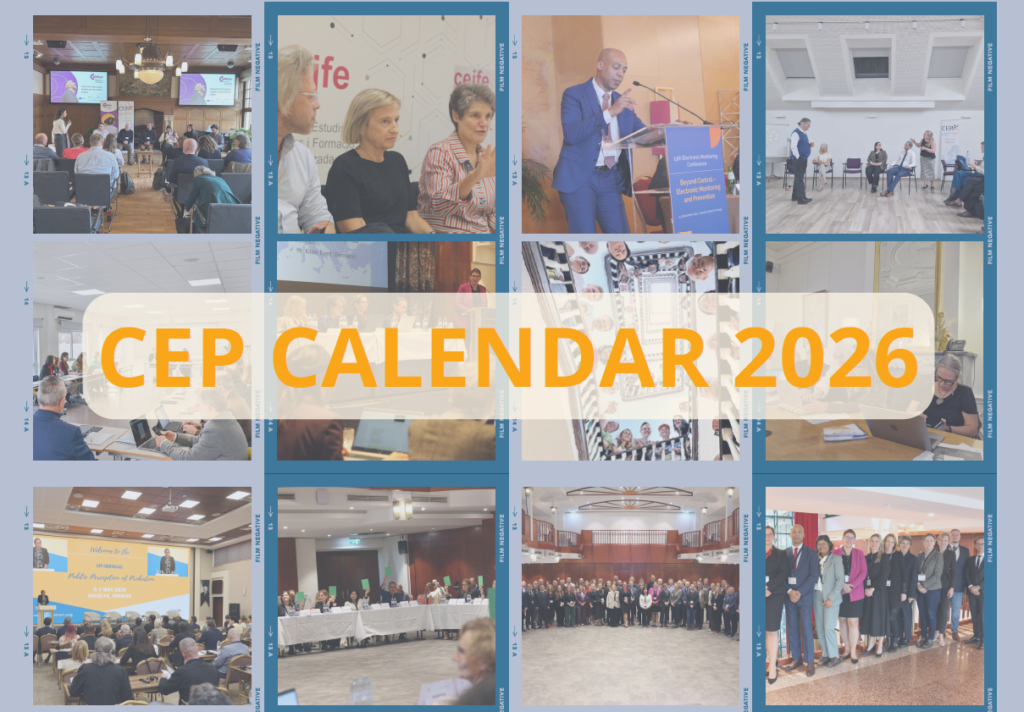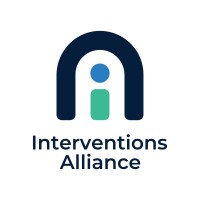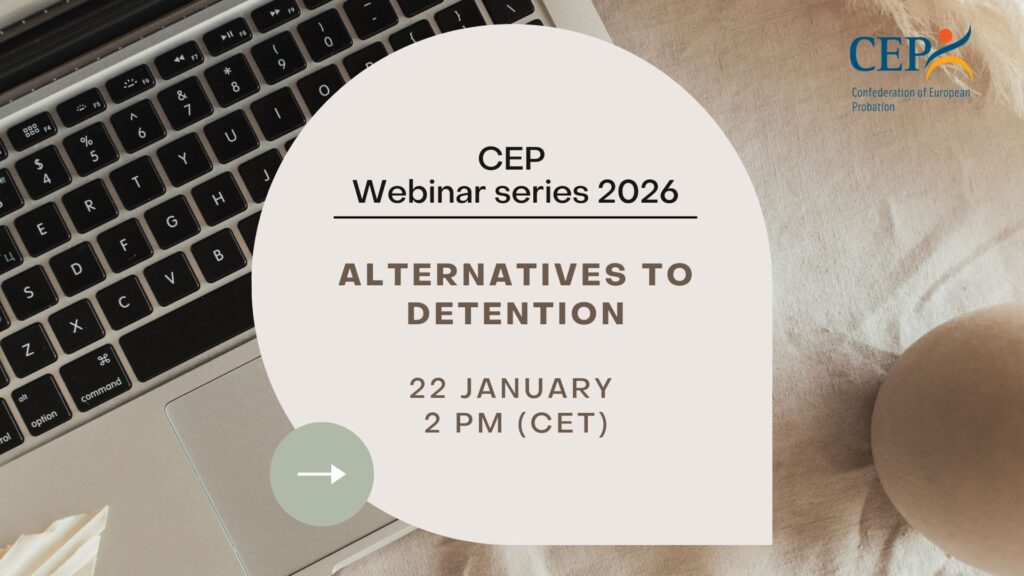Previous Article
News
Latvia explores alternatives to prison in European project
One of CEP’s newest Board members is Imants Jurevicius, he leads a project of the Latvian government that explores alternatives to prison. The project was launched in June 2013 and CEP agreed to become a project partner. The full title is: “Increasing the Application of Alternatives to Imprisonment (Including Possible Pilot Project on Electronic Surveillance)”. Imants Jurevicius: ‘In Latvia the State Probation Service is relatively young, we are making a continuous effort to expand on our work programme. The current project, which is funded by the so called Norway Grants, builds upon existing practices for probation and prison staff, introducing new tasks and goals.’

Alternatives
In European countries, the use of Electronic Monitoring (EM) has become an accepted measure as an alternative or an addition to a prison sentence. ‘We recognized that EM is a solution that contributes to better rehabilitation and lower number of prisoners,’ explains Imants Jurevicius. ‘In Latvia, however, EM is not yet an accepted as a full alternative. In our project, we want to see if we can use EM in a ‘back door model’, after serving a prison sentence. The public opinion still strongly favours imprisonment so it is a gradual start.’ The change of attitude concerns the general public, prison staff as well as probation workers.
Young offenders
The project encompasses a number of possible alternatives. ‘Apart from EM,’ continues Imants Jurevicius, ‘the project is working on a range of practices that promote the desistance from crime. One example is the special assessment tool for young offenders. Probation officers have indicated that they need more tools such as special interventions and for this reason we are introducing new thinking into the programme, to increase their tool set.’
Other examples of results that the project hopes to achieve are a range in training programmes in:
– motivational interviewing
– working with sex offenders
– general enhancement of prison and probation officer’s skills
– dealing with mental health issues
– dealing with the changes in policy, aimed at managers
‘In other words,’ says Imants Jurevicius, ‘I hope that more alternatives to prison will be implemented, leading to both lower crime rates and less inmates in prison. The people that do enter the justice system, will receive better assistance for their rehabilitation, and staff will be better trained in doing their job.’
Partners
The biggest partner is the Norwegian Correctional Service, while the Norwegian government is the largest financial contributor. Through the Norway Grants and EEA Grants, Norway contributes to reducing social and economic disparities and to strengthening bilateral relations with European countries. This principle is applied in the Latvian project, which will be running until April 2016. Imants Jurevicius: ‘Our relationship with the Norwegian Correctional Service goes back to the 1997 Nordic Prison project, then funded by the European Council. Since then we have built a strong relationship. The Norwegians have extensive experience with EM, one of our principle learning points.’
CEP will assist the Latvian project in several different ways, particularly in making connections with experts and specific training from other countries. ‘We want to incorporate as much knowledge as possible and CEP can help us to share our experience with the other European countries,’ explains Imants Jurevicius. ‘I expect that CEP takes part in activities, for example in the organisation of events. I believe that it is very important that we pass on what we learn.’

Related News
Keep up to date with the latest developments, stories, and updates on probation from across Europe and beyond. Find relevant news and insights shaping the field today.
New

CEP Events
CEP activity calendar 2026
20/01/2026
As we begin the new year, we would like to thank all CEP members, partners, and participants for your continued engagement and valuable contributions. Your involvement plays an essential role in shaping CEP’s work and activities.
We are pleased to share the CEP calendar for 2026, which provides an overview of the events planned for the year ahead. We look forward to continuing our collaboration and welcoming you to upcoming CEP activities throughout the year.
Thank you for being part of the CEP community.
New

CEP members, Gender-based violence
Interventions Alliance’s Eden House Recognized as Outstanding
15/01/2026
CEP is delighted to share that Eden House, an Interventions Alliance residential service for women with high-risk or complex needs on probation, has been rated “Outstanding” overall by HM Inspectorate of Probation. In 2022, Eden House was honored with the CEP Public Protection Award. Our sincere congratulations to the team for this remarkable achievement.
New

Education and Training
The Judicial Training Dashboard
14/01/2026
The European Training Platform (ETP) is a search tool for justice professionals. You can find self-learning materials on a great variety of EU law practice areas and related topics, as well as links to training providers’ homepages and course catalogues.
New

Technology
Communication on DigitalJustice@2030
13/01/2026
The EU’s competitiveness will increasingly depend on the digitalisation of all sectors, which will drive investment. Digitalisation and the deployment of artificial intelligence (AI) will be essential to the ability of public authorities to deliver high-quality public services, notably also in the field of justice. Europe’s Digital Decade is underway with the ambition that by 2030 the EU has all key public services available online. The ultimate aim will be to increase the efficiency of public services by making them digital by default, stimulating productivity.
New

Alternatives to pre-trial detention, CEP Events
Webinar on Alternatives to Detention – CEP Webinar Series 2026
13/01/2026
CEP is pleased to invite you to the first webinar in the CEP Webinar Series 2026, taking place on Thursday, 22 January 2026, at 14:00 CET. This webinar will introduce a unique programme developed by the Meuse Probation Service, which was awarded the CEP Award 2025 in the category of Rehabilitation and Social Inclusion (The Sue Hall Award).
New

Alternatives to pre-trial detention, CEP Events
CEP Webinar Series 2026
12/01/2026
In 2026 CEP launches a series of short webinars that will take place every third Thursday of January, March, May and November.
We sincerely invite all probation practitioners, social workers, managers, policy makers, researchers, students as well as colleagues from partners organisations to join and share your knowledge with us.
Subscribe to our bi-monthly email newsletter!
"*" indicates required fields
- Keep up to date with important probation developments and insights.

